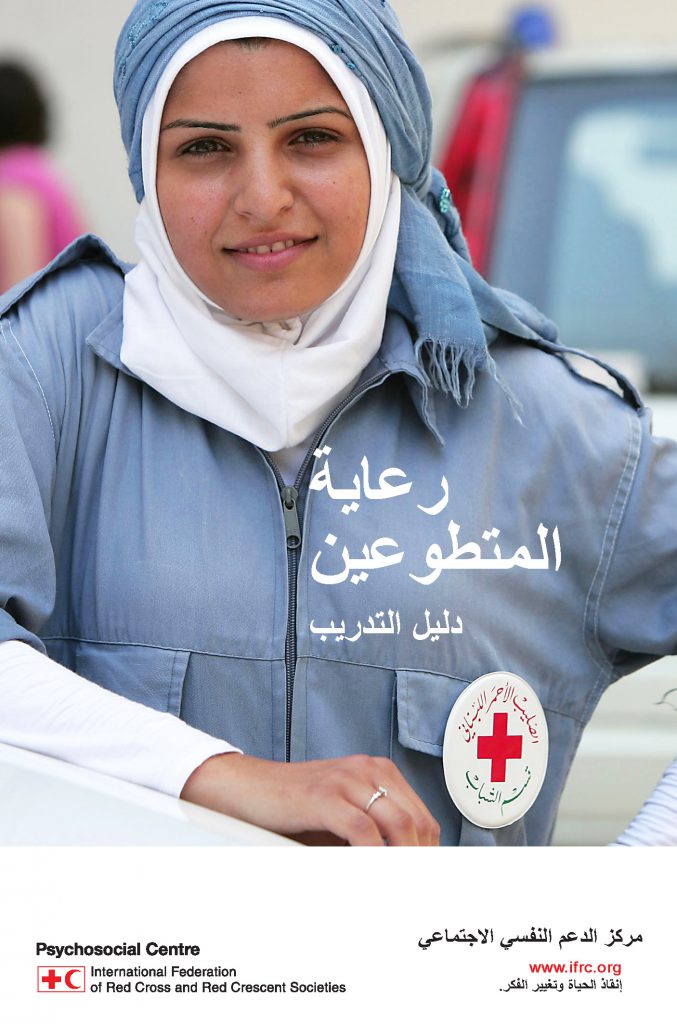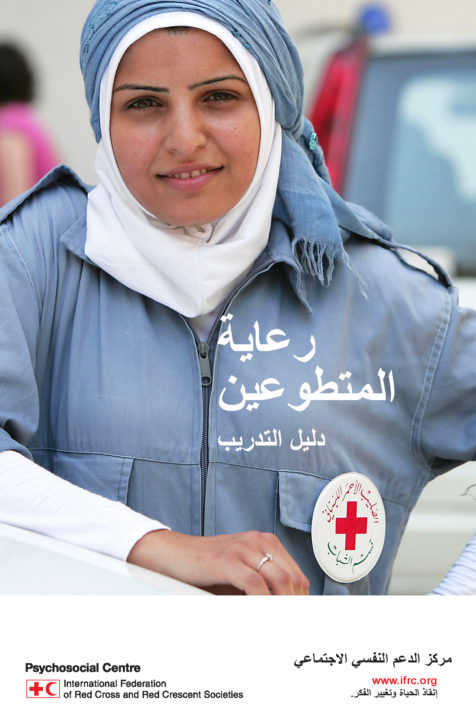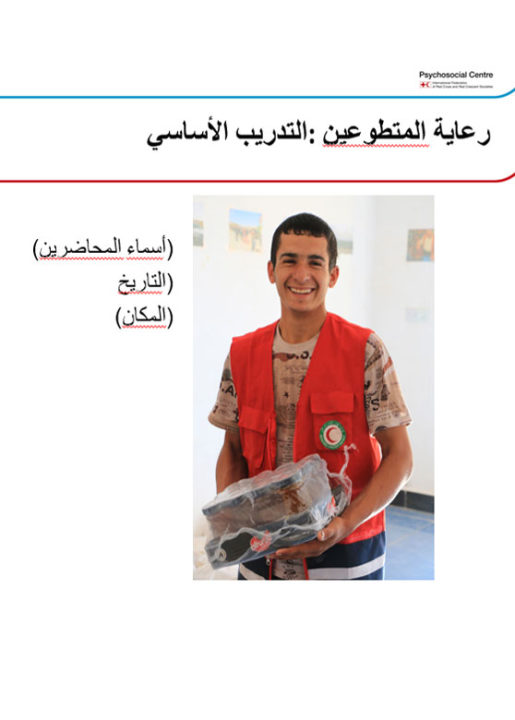Caring for Volunteers: Training Manual complements the PS Centre’s 2012 publication Caring for Volunteers: A Psychosocial Support Toolkit, which focuses on the well-being of volunteers in situations of crisis or catastrophe.
The training manual was developed with the goal of better training and preparing volunteers in helping beneficiaries, and to help volunteers learn to recognize signs of stress and take better care of themselves and each other.
Caring for Volunteers: Training Manual includes key concepts and definitions needed by trainers in the field. It articulates possible risks to volunteers’ well-being, and presents strategies for reducing those risks. It includes sessions on self-care, peer support and PFA and has guidance on how to set up a support system for volunteers and on monitoring and evaluation. The training also includes a valuable session on making an action plan to follow up the work done in the training.
There are two sets of PowerPoint presentations accompanying this training manual: the first presentation is the one to which there are numerous references in the manual, and the second (the ToT) is to be used in a Training of Trainers workshop.






